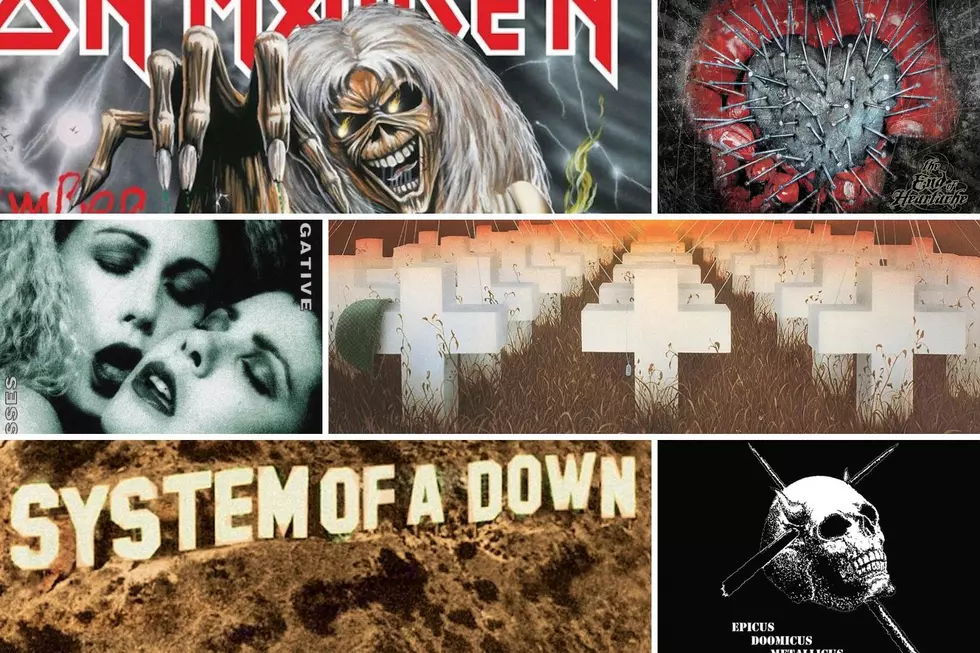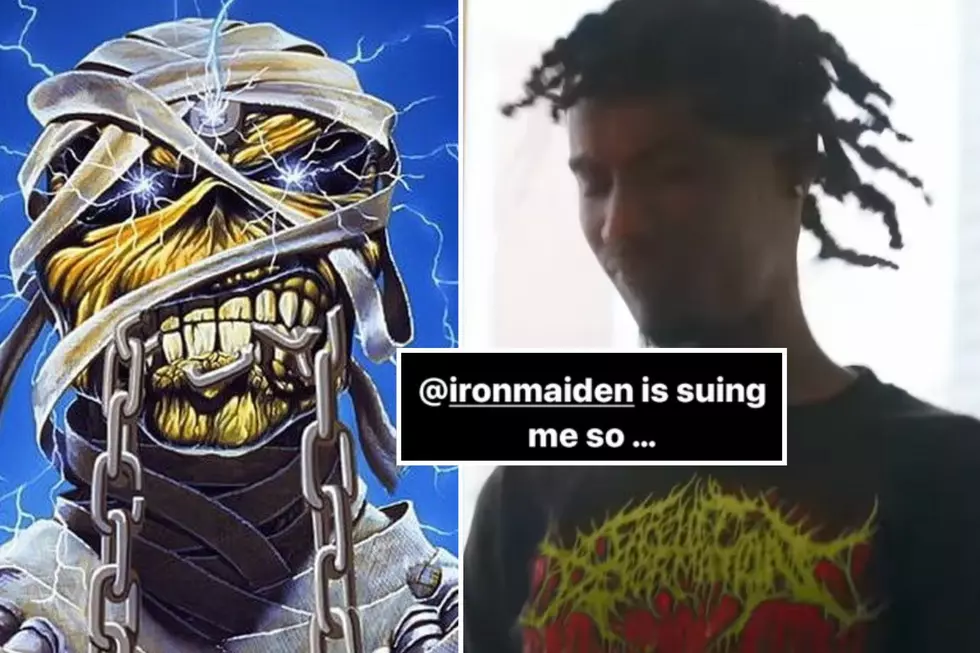
Iron Maiden’s Six Best Rock ‘N’ Roll Songs
Here are Iron Maiden's six best rock 'n' roll songs.
Yeah, yeah, yeah... we know Iron Maiden are a metal band and we're not here to convince you otherwise. Their place in metal's pantheon has been secure for decades, not that it's stopped them from reassuring everyone of their rightful place there by maintaining top form.
But, along the way, they've written their share of songs that are more firmly entrenched in rock 'n' roll than their pioneering brand of heavy metal.
Whether it was during the early Paul Di'Anno years, after making a big change at guitar in the '90s or showcasing how vital their rock influences still are in their late career, rock has never been far off in the distance in any Maiden era.
Adrian Smith can still conjure his best Ritchie Blackmore impersonation, Steve Harris made his love of The Who obvious during the Blaze Bayley era, Janick Gers played in Ian Gillan's solo band and Bruce Dickinson's love for Deep Purple was never a mystery.
A musician's roots are hard to escape and, as they grow older, they seems to return to those early influences, reconnecting with what made them fall in love with music in the first place.
"Strange World" (Iron Maiden)
The beginning is usually a good place to start, though we are not going to continue in chronological order.
Iron Maiden's 1980 self-titled debut boasts two songs unlike almost any other in the catalog and both are heavily steeped in '70s rock balladry with twinges of swirling psychedelia. Forcing ourselves to pick one or the other, "Strange World" gets the edge since it lacks that totally sinister riff that overtakes "Remember Tomorrow."
While not the most adrenalized rock 'n' roll song — far from it — the ethereal "Strange World" calls back to the '70s period where rock bands just wrote great moody, reflective songs with a softer touch. It was more about the range of human emotion and expressing it through music than crafting something more easy listening for big-time radio airplay.
We promise, it really gets more rockin' in the traditional sense from here on out...
"Chains of Misery" (Fear of the Dark)
Fear of the Dark, Iron Maiden's second album of the '90s, second album with guitarist Janick Gers and second album returning to a more street-savvy sound was also their last with Bruce Dickinson until 2000.
It's a mixed bag with its share of underrated/overlooked offerings, including the quite rocking "Chains of Misery." It appears before the dreadful "The Apparition," speaking to the volatile nature of the album's full run, and is an idealistic representation of who Iron Maiden wanted to be in the early '90s.
Making that play to strip back their progressive elements, "Chains of Misery" is not only a return-to-roots affair, but embraces the sleaziness that had been pervasive in mainstream metal. It's grimy with a playful delivery and even features a gang-shout chorus.
This is an ultra-rare Dickinson/Dave Murray co-write. Davey doesn't do a lot of writing, but his contributions are almost always worth their inclusion on any Maiden record.
READ MORE: Ranking the Opening + Closing Song on Every Iron Maiden Album
"The Final Frontier" (The Final Frontier)
I will admit that when Iron Maiden dropped this as a single, I had concerns over the album. While the rest of the record was an immediate standout (too many fans argue otherwise), it's the title track that took the most time to grow.
The single excludes the unique opening "Satellite 15," which was a fun twist and refreshing to see Maiden opening up an album with something they'd never done before. So, judging it on standalone merit, it's refreshing in its own right due to the songwriting. It is perhaps the band's simplest track and we rarely hear this band so carefree and upbeat.
The start/stop verse riff doesn't bring much of anything to the table, other than an inherent means to getting to the upcoming hook, but it is pleasing enough. Even the repetitive chorus never feels exhausting and maintains its bursts of joy.
Less is more, as they say.
"The Writing on the Wall" (Senjutsu)
The first preview at Iron Maiden's 17th album, Senjutsu, came with a visual treat as well as the band delivered their best music video in a very long time.
"The Writing on the Wall" is a rollicking track with a high-kicking Celtic folk melody to drive it. As far as influences go, this Smith/Dickinson co-write (they make such a lovely team, don't they?) showcases the latter's known love for Jethro Tull.
And does anyone else hear the riff from Bad Company's "Feel Like Makin' Love" or are we going crazy?
"Running Free" (Iron Maiden)
One of Iron Maiden's most beloved set closers is one of their purest expressions of rock 'n' roll.
The simple chugging riff and borderline punk energy is rounded out by another essential ingredient in rock — attitude and rebellion. "Just 16, a pickup truck, out of money, out of luck / I've got nowhere to call my own, hit the gas and here I go," the song famously begins.
It's the type of song a band can only write on their debut album — a bit immature, lacking real world experience while still conjuring images of the vision of the rock lifestyle so many others before them had sold to the world.
"Bring Your Daughter... to the Slaughter" (No Prayer for the Dying)
Iron Maiden's only single to go No. 1 in their native U.K., "Bring Your Daughter... to the Slaughter" wasn't even originally written for Iron Maiden.
The song, penned by Bruce, was first released on the soundtrack to A Nightmare on Elm Street 5: The Dream Child. Steve Harris, who has a history of plucking songs his singer had other intentions for ("If Eternity Should Fail," for example), decided it had to go on Maiden's next album.
It's a fun, dark and even menacing song that is on the short list of No Prayer for the Dying highlights.
How Many Songs Each Iron Maiden Member Has Written
Gallery Credit: Joe DiVita
The 46 Songs Iron Maiden Have Never Played Live
Gallery Credit: Joe DiVita
More From Loudwire









